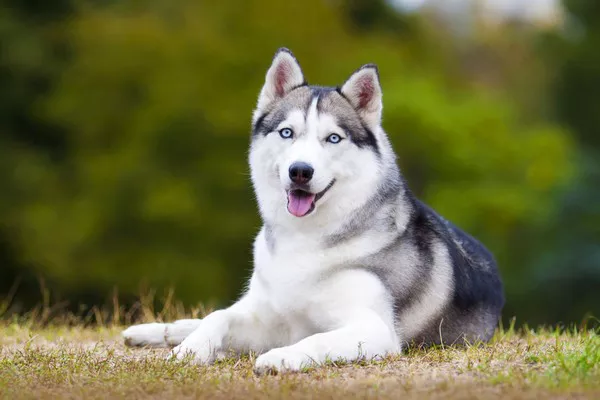Understanding the Husky Diet
Huskies, known for their active and energetic nature, require a well-balanced diet to maintain optimal health and vitality. As descendants of sled dogs, their metabolism and dietary needs differ from other breeds. Proper nutrition plays a pivotal role in supporting their high activity levels, muscle strength, and endurance. A wholesome diet should primarily consist of high-quality dog food formulated to meet huskies’ specific nutritional requirements. This dog food typically contains essential nutrients like protein, fats, carbohydrates, vitamins, and minerals that cater to their energetic lifestyle.
However, while commercial dog food provides a solid foundation, supplementing their diet with small portions of fruits and vegetables can offer additional health benefits. The natural goodness of certain fruits and vegetables can act as nutritious treats and contribute to their overall well-being. But it is crucial to understand which fruits and vegetables are safe for huskies and which ones should be avoided.
Fruits Huskies Can Eat
Apples: Apples are a popular choice for dog owners looking to provide their huskies with a healthy and delicious treat. Packed with essential vitamins A and C, apples can promote good vision and strengthen the immune system. To ensure safety, always remove the core and seeds before feeding apples to huskies. The seeds contain trace amounts of cyanide, which can be harmful in large quantities.
Blueberries: Known for their antioxidant properties, blueberries can be a delightful addition to huskies’ diets. These tiny, nutrient-rich berries help combat harmful free radicals, reducing the risk of chronic diseases and supporting overall health. Including blueberries as an occasional treat can contribute to their well-being and longevity.
Watermelon: During hot weather, a refreshing treat like seedless watermelon can be a hydrating and enjoyable option for huskies. The high water content in watermelon helps keep them hydrated, while essential vitamins and minerals further contribute to their health. As with any treat, moderation is key to avoid an upset stomach due to excessive sugar consumption.
Bananas: Bananas are a favorite among many dogs, including huskies. Rich in potassium, which supports heart and muscle health, bananas also provide dietary fiber, aiding in digestion. As a low-calorie treat option, bananas can be a guilt-free indulgence for your husky.
Vegetables Huskies Can Eat
Carrots: Crisp and flavorful, carrots are an excellent choice for huskies. Apart from being low in calories, they are packed with vitamins A and K, contributing to healthy eyesight and proper blood clotting. Additionally, the crunchy texture of carrots helps in maintaining dental health by reducing plaque buildup.
Sweet Potatoes: Cooked sweet potatoes offer a delectable option for huskies. Loaded with beta-carotene, a precursor to vitamin A, sweet potatoes support skin and coat health. The dietary fiber content aids in digestive regularity, making sweet potatoes a valuable addition to their diet.
Peas: Peas are a great source of essential vitamins and minerals, including vitamin B, vitamin K, and potassium. When used as treats or mixed with regular meals, peas can add nutritional value to your husky’s diet. However, like all treats, they should be offered in moderation to prevent any digestive disturbances.
Spinach: Rich in iron and other vital nutrients, spinach can be a healthy addition to husky meals. It helps promote proper blood circulation and contributes to overall health. However, spinach contains oxalates, which can hinder the absorption of calcium. Therefore, it’s best to offer spinach in moderation and avoid large quantities.
Moderation and Avoidance
While some fruits and vegetables are safe and beneficial for huskies, it’s crucial to exercise caution and moderation. Even the healthiest treats, when overindulged, can lead to gastrointestinal upset or obesity. Fruits like grapes, raisins, onions, and garlic should be strictly avoided, as they can be toxic to dogs, potentially causing severe health issues.
Precautions and Introducing New Foods
Before introducing any new food to your husky’s diet, it is essential to consult a qualified veterinarian. Each dog is unique and may have specific allergies or sensitivities to certain foods. Your veterinarian can provide personalized advice and recommend suitable fruits and vegetables for your husky’s individual needs.
The Right Way to Offer Treats
When providing fruits and vegetables as treats, ensure they are fresh and properly washed to remove any pesticides or harmful residues. Cut them into small, manageable pieces to prevent choking hazards and to make it easier for your husky to consume. Avoid seasoning or adding salt to the treats, as excess salt intake can be harmful to dogs.
Monitoring Your Husky’s Health
As a responsible husky owner, closely monitoring your pet’s health is paramount. Observe for any adverse reactions after introducing new fruits or vegetables. If you notice symptoms such as vomiting, diarrhea, lethargy, or unusual behavior, discontinue the new food immediately and consult your veterinarian.
Conclusion
Feeding huskies the right fruits and vegetables in moderation can be a rewarding way to show them love and care. Remember that while these natural treats can provide additional nutrition, the foundation of their diet should always be high-quality dog food. By adhering to this comprehensive guide, you can confidently select safe and nutritious treats for your husky, ensuring they lead a happy and healthy life. Always prioritize their well-being and seek professional advice when necessary, and your husky will thrive under your attentive care.


